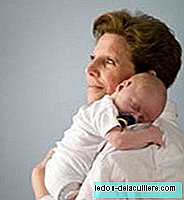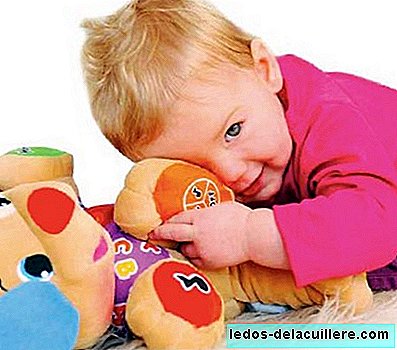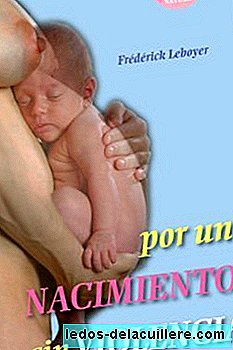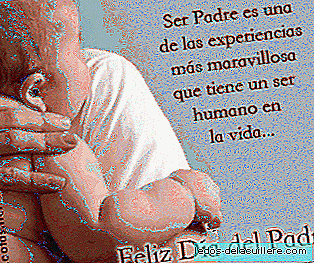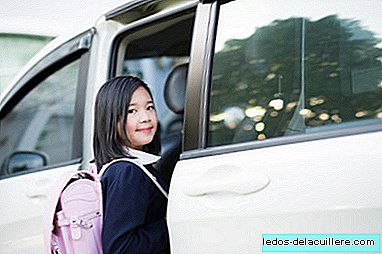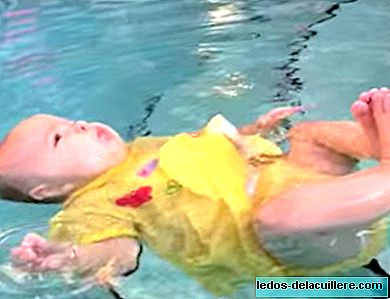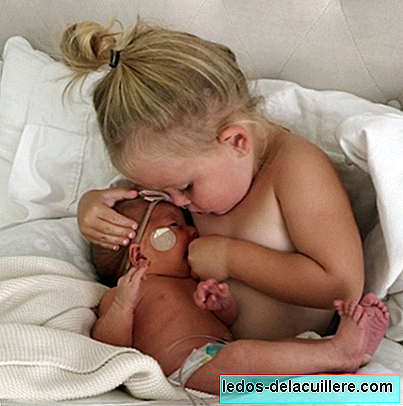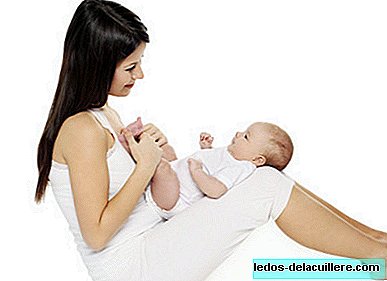
Put yourself in front of the baby and move your mouth, stick your tongue out, close your eyes or smile. It becomes a game, because the little one repeats our movements. Or is it a mere coincidence? Until now babies had been thought to mimic adult gestures, but it is possible that they are mere coincidences, at least in the smallest ones.
Because the most likely thing is that the baby, stimulated by the face of mom or dad, makes his gestures with the face just as he moves his hands or legs, activating his motor system, which is essential for its development. That is why, even if our baby does not imitate us, we must continue playing with them, making faces and sounds, since these are fundamental stimuli for him.
We know. It is beautiful to think that the newborn has imitated us by opening his mouth, sticking out his tongue or smiling, but it is likely that the imitation is not rooted in them and at first he does not even see us well (another thing is when a few months pass, then the baby is able to imitate). So, their movements, more than mimicry, are simply gestures (on the other hand, nothing negligible and sign that they are healthy).
This was indicated by a study published last May in Current Biology, prepared by researchers from the University of Queensland (Australia). This research rekindled a 40-year-old controversy, after a study in 1977 established that babies imitated adult gestures. Although this was questioned on several occasions, it is likely that some investigations that did not find imitation exist were not published because they did not obtain the expected results.
With this review and new study, conducted with babies one, three, six and nine weeks old, the authors hoped to collect previous and new data, and help to convey some of those negative results. Among the new conclusions, it was seen that, although babies stuck out their tongue more likely if an adult performed that gesture, they also pulled it out in response to seven other different gestures.
So, most likely, the baby will increase his activity when they meet face-to-face with an adult, but their movements or gestures did not match specifically with those who do these. This is how the researchers concluded after having experimented with 11 different facial expressions or expressions.
In summary, the probability that they imitated their parents was as great as the possibility of them doing anything else. Later, babies learn to imitate, either by observing how one person imitates another or seeing how they imitate themselves, something that parents constantly do.
Is it definitive that imitation ability is not innate? At what age do children begin to imitate others? As we can see, there are still issues to be resolved, but the important thing is not to forget that, despite these doubts, adults are a fundamental part of early communication and learning. And don't we have a wonderful time making gestures and noises to our baby, seeing how he responds to us?
Anyway, although babies do not imitate our gestures, what is clear is that watching us stimulates their brain activity, being in face-to-face contact with parents, looking into their eyes, responding to their smiles, interacting with it ... is fundamental to its development and to establish a secure affective bond, so I would not stop playing with the baby to those fun imitations.



